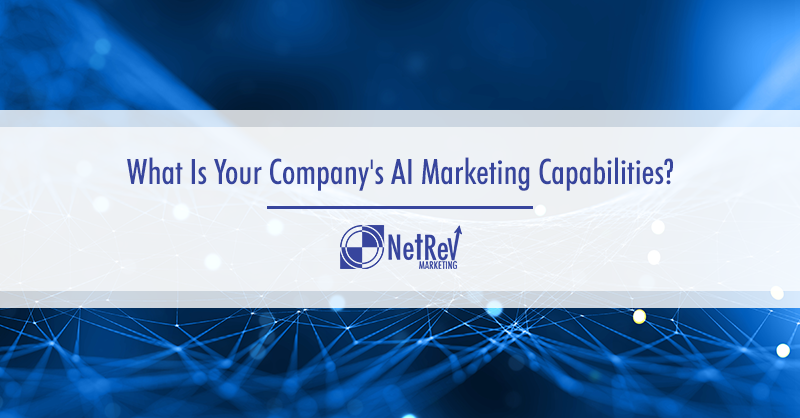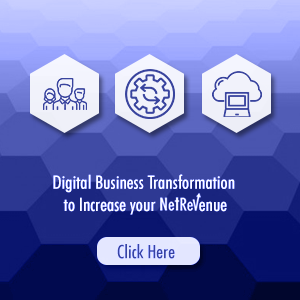
Artificial Intelligence (AI) is the tech industry’s latest buzzword – and rightly so. AI promises to streamline workflows in the same way that the steam engine transformed manufacturing. While there are endless debates as to how far machines can really think like humans, there is no question that computing power has vastly increased in recent years, shortening processing time and cleaning up what would have been useless data.
For the most part, what people refer to as AI now is, at best, augmented intelligence or machine learning. This means computers can refine algorithms based on data and results of previously run processes, and provide more finely tuned content. AI is a means to an end for marketing professionals, and that end is to use consumer data in a way that will drive conversion or sales. Not all AI or machine learning is the same. Marketers need to know what is available and how each process is best used for which activities.
- Deep Learning – Run on graphics processing units (GPUs), deep learning involves image identification and tagging. This enables users to pull up relevant images in searches, or for machines to make suggestions based on what they ‘see’. An example would be facial recognition translated as suggestions for tagging friends on photos.
- Machine Learning (ML) – Computers create models based on tons and tons of collected data, without human intervention. In short, machines figure out what to do with the data they’ve collected, such provide shopping recommendations based on user profiles or preferences.
- Conversational Systems – Chatbots are the most common example of this system. Computers use content analytics to communicate with humans in a way that seems natural and personal.
How about MarTech?
Marketing Technology or MarTech involves campaign management, data management, and reporting. And while MarTech is thriving in its own right, AI is helping marketers push the envelope even further. Data management becomes fine-tuned to include segmentation, targeting, and analytics. And that is just the beginning. Imagine the efficiency and effectiveness that marketers can achieve with increasingly intelligent computing – less guesswork, more data-driven decision-making. MarTech will continue to evolve and intersect with AI/ML as the years pass. For marketers, this means being an early adopter of MarTech and AI/ML will yield higher rewards.
At the heart of the AI/ML promise in MarTech is the ability to deliver personalized content that enhances customer experience. The brand that is able to exceed customer expectations will define market standards – and the cycle continues, as brands try to outdo each other in delivering the best, most personal customer experience.
The ideal way for marketers to harness AI is to employ cloud-based services that have Customer Relationship Management (CRM) and marketing applications embedded in their service. Of the many AI/ML services, IBM’s Watson is the most sophisticated and advanced engine available in the market, according to an independent review by the International Data Corporation (IDC). Watson can see, hear, read, and feel – aside from write and talk. But the strength of IBM’s offering is not simply what Watson can do, but how Watson is applied to specific use cases that benefit marketers. Watson programs and applications go through a battery of tests to ensure that they possess four capabilities – understanding, reasoning, learning, and interacting. In short, the application must function as a personal assistant in order to be offered as part of the Watson services.
What makes Watson such a robust platform is the breadth of intelligent computing it provides to marketers. Marketing use cases for Watson span from chatbots and virtual assistants, to social sentiment analysis, to cross-selling / upselling, to cognitive and dynamic content marketing. Whilst you may not need all the services Watson has to offer, engaging with AI applications now makes the addition of future AI services more seamless.
Before you dive into AI, it would be best to review your current marketing activities and identify specific areas you would like to strengthen. There may be specific MarTech or AI solutions that can help build capabilities in those areas. Look at the gaps as an opportunity to leapfrog into cloud-based marketing, and slowly build your AI/ML proficiency.
Below is an overview of the AI/ML services available through IBM’s Watson, as reviewed by IDC.
- Chatbots/virtual assistants: These enable developers and business users to quickly build cognitive chatbots and virtual agents for deployment across any channel or device.
- Virtual sales rep/qualifying engine: Expert Personal Shopper leverages natural conversation to guide customers to the right product, information, and insights recommendations.
- Social sentiment analysis: This helps users achieve a holistic view of consumers, products, markets, and competitors from millions of online sources.
- AI-enabled recommendation engines: Rules advisor recommends the most effective content for specific audiences based on click rate and certainty predictions from every customer interaction.
- Cognitive commerce/merchandising: Insights Assistant identifies abnormal business conditions (revenue and margin) with supporting evidence and recommended actions.
- Cognitive content marketing/dynamic content: Watson automates content tagging.
- Attribution analysis: Attribution Modeler helps marketers to optimize their marketing mix across online and offline channels.
- Competitive intelligence: IBM Dynamic Pricing enables online merchandisers to optimize their response in real-time to changes in competitive prices, product demand, and market conditions.
- Lead scoring: Models can rank customers based on demographic and behavioral data to determine their likelihood to respond to an offer or campaign.
- Cross-selling/upselling: Models identify the best offer/product to be promoted to an individual to maximize revenue per customer.
- Audience segmentation: Variety of segmentation and machine learning models reveal key predictors then recommend segments to improve tests, relevancy, and marketing investments.
- Virtual marketing assistant: Watson Marketing Assistant helps marketers manage campaign automation by allowing them to interact naturally with a cognitive assistant through NLP.
- Cognitive location awareness: It identifies locations of relevance to each user (e.g., user’s home and work locations) so marketers can reach them at these locations.
- Cognitive weather events: WeatherFX allows targeting based on weather conditions at the consumers specific location.
- Interactive ads: Watson Ads allows consumers to interact with Watson through digital advertising that engages them with conversation, prompted questions, and insights.
- Cognitive next best action: Marketers can blend current (and past) behavior, profile data, predefined rules, and cognitive self-learning to orchestrate personalized experiences.
If you’re looking to create an AI Marketing Strategy for your company, you must first need to review and audit your current marketing technology tools and marketing team resources to develop an AI Marketing Plan. Interested to know more how we can help? Please contact us to set up a meeting.

